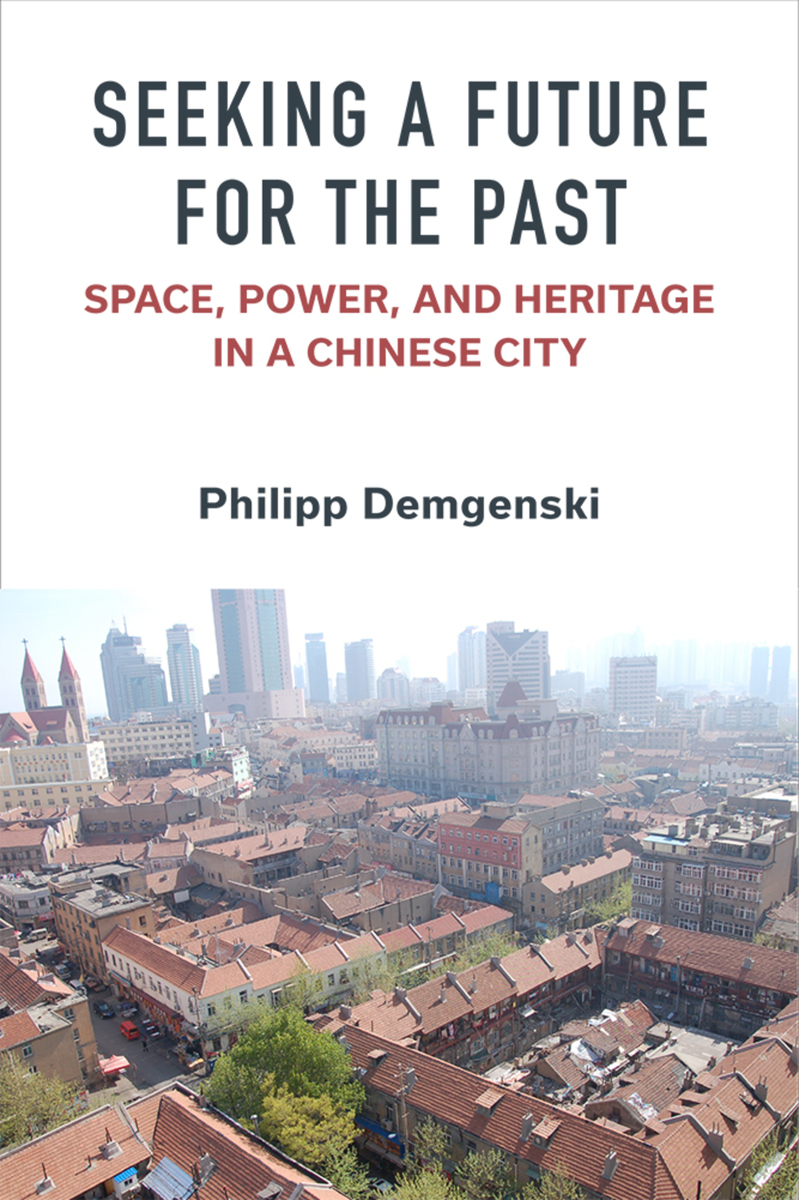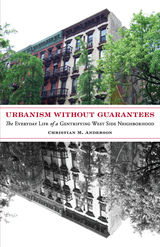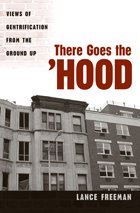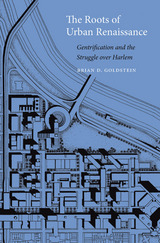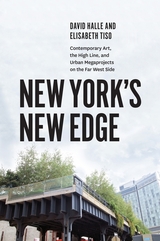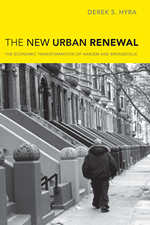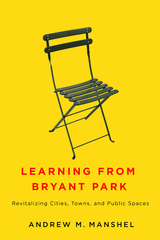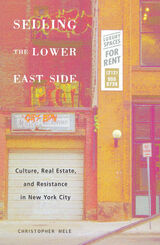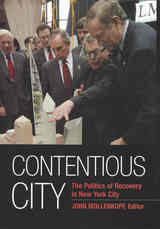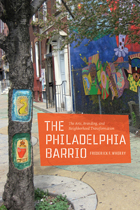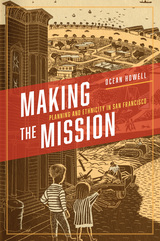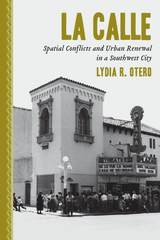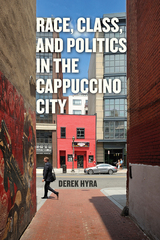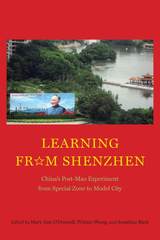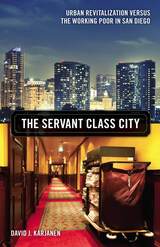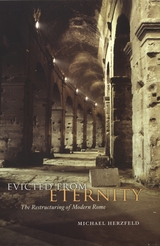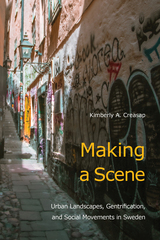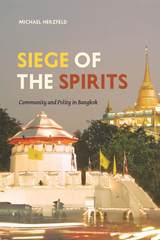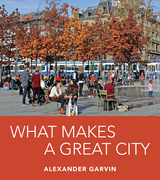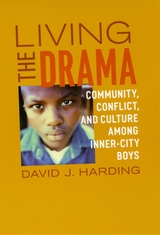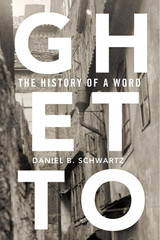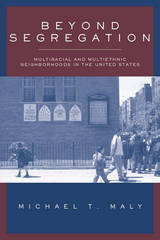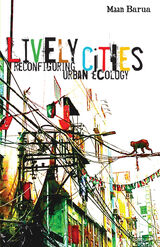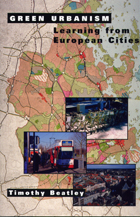“Seeking a Future for the Past builds on a decade of fieldwork in order to examine how different groups invest meanings in place and how they think about preservation and redevelopment. It is the most comprehensive study on redevelopment in Qingdao and will appeal to readers in urban studies, China studies, and heritage studies.”— Xuefei Ren, Michigan State University
"Research topics on urban redevelopment and renewal are often dominated by scholars from the architecture and urban design fields, so Demgenski's ethnographic approach is refreshing and unique. His book will appeal to readers not only from the field of Chinese studies in general, but also those from different disciplines including urban studies, urban planning, heritage preservation, sociology and law." — The China Quarterly
"The anthropological approach adopted by the study, together with the rich empirical evidence, makes it a valuable resource for anyone wishing to deepen their understanding of the complexities and changing socio-political dynamics of urban renewal in contemporary China."— Hangli Zeng, Urban Studies
“Seeking a Future for the Past is a sensitively written and comprehensively researched ethnographic study of the sociopolitical dynamics of urban redevelopment and renewal, charting the transformation of a small, poor, and socially marginalized neighborhood located in the center of Qingdao’s old city into a showcase for Qingdao’s heritage celebration of its modern history. I hope it becomes a major text in studies of urban transformation in China and of urban anthropology in general.”— Harriet Evans, Westminster University/LSE
"The author’s careful attention to local voices and interpretations captures nuances often missed in broader discussions of urban development. The work will be valuable to scholars of heritage studies, urban anthropology and contemporary China, offering fresh insights into how heritage shapes – and is shaped by – local power dynamics and social relations from the past, the present and the future."— Hua Yu, International Journal of Heritage Studies
"The author’s careful attention to local voices and interpretations captures nuances often missed in broader discussions of urban development. The work will be valuable to scholars of heritage studies, urban anthropology and contemporary China, offering fresh insights into how heritage shapes – and is shaped by – local power dynamics and social relations from the past, the present and the future."— Hua Yu, International Journal of Heritage Studies
"Research topics on urban redevelopment and renewal are often dominated by scholars from the architecture and urban design fields, so Demgenski's ethnographic approach is refreshing and unique. His book will appeal to readers not only from the field of Chinese studies in general, but also those from different disciplines including urban studies, urban planning, heritage preservation, sociology and law." — The China Quarterly
"The anthropological approach adopted by the study, together with the rich empirical evidence, makes it a valuable resource for anyone wishing to deepen their understanding of the complexities and changing socio-political dynamics of urban renewal in contemporary China."— Hangli Zeng, Urban Studies
“Seeking a Future for the Past is a sensitively written and comprehensively researched ethnographic study of the sociopolitical dynamics of urban redevelopment and renewal, charting the transformation of a small, poor, and socially marginalized neighborhood located in the center of Qingdao’s old city into a showcase for Qingdao’s heritage celebration of its modern history. I hope it becomes a major text in studies of urban transformation in China and of urban anthropology in general.”— Harriet Evans, Westminster University/LSE
“Seeking a Future for the Past builds on a decade of fieldwork in order to examine how different groups invest meanings in place and how they think about preservation and redevelopment. It is the most comprehensive study on redevelopment in Qingdao and will appeal to readers in urban studies, China studies, and heritage studies.”— Xuefei Ren, Michigan State University
"The book offers a fascinating and well-illustrated account of urban life in Qingdao's degraded inner-city alleyways, with photographs, maps and documents that help the reader get an idea of Dabaodao's local sense of place. Overall, this beautifully written, well-illustrated ethnography makes a major contribution to China studies, urban studies, cultural anthropology and heritage studies." — Judith Audin, Asian Anthropology
“Seeking a Future for the Past builds on a decade of fieldwork in order to examine how different groups invest meanings in place and how they think about preservation and redevelopment. It is the most comprehensive study on redevelopment in Qingdao and will appeal to readers in urban studies, China studies, and heritage studies.”— Xuefei Ren, Michigan State University
"Research topics on urban redevelopment and renewal are often dominated by scholars from the architecture and urban design fields, so Demgenski's ethnographic approach is refreshing and unique. His book will appeal to readers not only from the field of Chinese studies in general, but also those from different disciplines including urban studies, urban planning, heritage preservation, sociology and law." — The China Quarterly
"The anthropological approach adopted by the study, together with the rich empirical evidence, makes it a valuable resource for anyone wishing to deepen their understanding of the complexities and changing socio-political dynamics of urban renewal in contemporary China."— Hangli Zeng, Urban Studies
“Seeking a Future for the Past is a sensitively written and comprehensively researched ethnographic study of the sociopolitical dynamics of urban redevelopment and renewal, charting the transformation of a small, poor, and socially marginalized neighborhood located in the center of Qingdao’s old city into a showcase for Qingdao’s heritage celebration of its modern history. I hope it becomes a major text in studies of urban transformation in China and of urban anthropology in general.”— Harriet Evans, Westminster University/LSE
"The author’s careful attention to local voices and interpretations captures nuances often missed in broader discussions of urban development. The work will be valuable to scholars of heritage studies, urban anthropology and contemporary China, offering fresh insights into how heritage shapes – and is shaped by – local power dynamics and social relations from the past, the present and the future."— Hua Yu, International Journal of Heritage Studies
